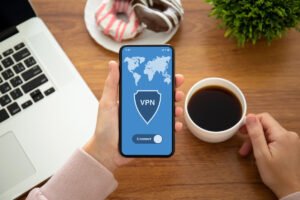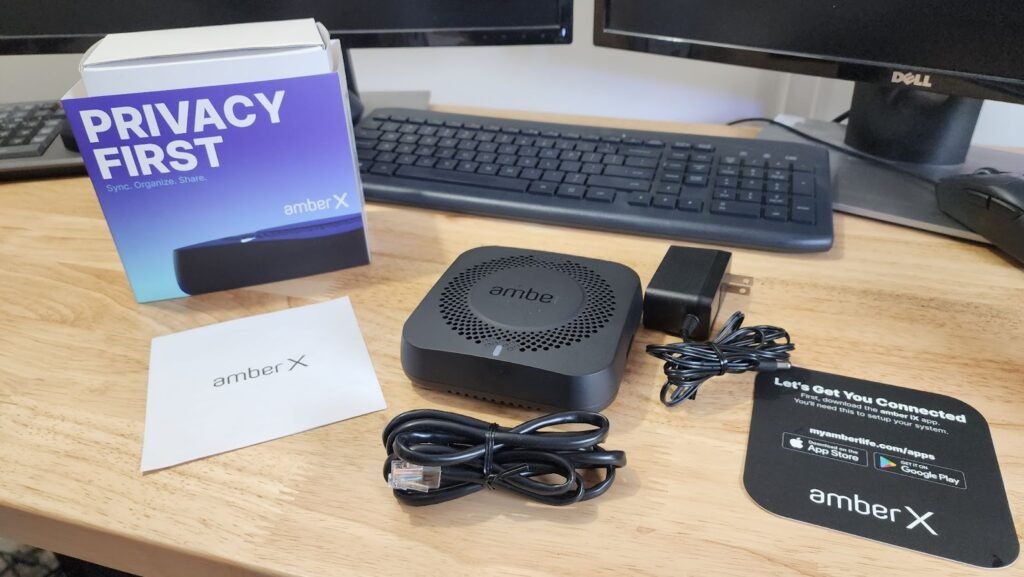Does your smartphone track your private data? Does it collect personal information and share it with third parties? You bet. Does this sound familiar? We are going to talk about one easy trick to stop your iPhone or Andriod apps from tracking your private data
You and a buddy are talking on the phone or maybe in person and you mention you’re thinking about buying a home. The next few days you see a ton of real estate ads on Facebook and/or websites about buying a new home. A recent study of nearly 1M smartphone apps gave us a little insight into how our personal data is shared. It’s estimated that nearly 90% of our apps transfer information back to Google. While the data flow to other tech companies isn’t as high as it is with Google, they still get in on the personal data action. Facebook, Twitter, Verizon, Microsoft, and Amazon all want in on that information and they pay for it as well. With iPhones, nearly two-thirds of their apps collect some type of data that is linked to data collected by another third party (like a personal data broker or ad network).
What Data Do Smartphone Apps Collect?
Honestly, who knows. Our smartphone devices are smart. They do a ton of amazing things. In fact, if you could go back in time 20 years and tell yourself all the cool things your smartphone can do, your back-in-time self would most likely not believe you. Most apps do collect some personal information about you and your device. It’s not unlikely that your name, physical address, email address, phone number, and exact location are being shared. It’s estimated that about half of our apps request location tracking. One time, one of my kids downloaded one of those candy-crush-type apps and it wanted access to the phone’s location. It was quite funny. Is that frightening? It can be when looking at it from a high-level perspective. There are some apps that use and access your smartphone’s camera and microphone as well. Some apps keep a call log. Some read and store your SMS messages. There are literally millions of data points that can be collected.
How Often Should You Do An App Audit?
Honestly, it depends. If you are the type that downloads 10-12 apps a year, then maybe doing an app audit a couple of times a year isn’t a bad idea. An app audit is simple. You just dive into your smartphone’s settings (more on that below) and do a personal inventory of what apps you have installed and what they have access to. You have to assume those apps are collecting personal information. On the flip side, if you have a kid (and we know how kids are with downloading apps) with a smartphone device that regularly downloads apps you may want to perform an app audit each month. And don’t rely on monitoring software to manage permissions for you. Some services might have that feature, but it’s still a good idea (and smart parenting) to manually go through your kid’s smartphone and get a feel for what apps have permissions. As a guiding principle, we usually ask a few questions when doing an app audit: What information and permissions does the app have or is requesting? Am I okay with sharing my personal information with this specific app developer? Does this app need all of these permissions? (i.e.Does Candy Crush really need to know my exact location?) This is a pretty good framework to operate from and really gives you a multi-dimensional perspective on making common sense judgments about the kinds of permissions you can and should allow based on the purpose and functionality of the app. When we first heard of doing an app audit, it was kind of laughable. But now…it’s almost crucial in the smart world we live in.
Android Instructions On Restricting Apps Access
Please note that these instructions may vary depending on the model of smartphone you use, but generally speaking, it’ll be very similar across different devices. For Android users, you’ll want to open the Settings app and go to Apps & Notification menus. Tap on the smartphone app you want to adjust then tap on Permissions to see every little detail that the app has access to. In some cases, certain permissions are vital for the proper functioning of the app, so be judicious in what permissions you allow or don’t. Probably not smart to disable your camera and microphone with Google Meet. You can also get a bigger detailed list by tapping App Permissions on the Apps and & Notifications window. A little warning though, some apps will perform differently once you remove permissions. If the app is super buggy after you’ve adjusted permission, you may need to go back and adjust again. It’s up to you.
iPhone Instructions On Restricting Apps Access
Turning on and off app permissions in the iPhones iOS is really easy. It might vary from iOS versions, but the idea is very similar. This was tested in iOS 15. In the Settings app, tap on the specific app and determine which features you want it to have access to. When it comes to tracking you, you’ll need to perform a secondary adjustment. In the Settings app, click Privacy, the Tracking. From here you’ll see every app that is requesting to “Allow Apps to Request to Track.” You can toggle that on and off for every app on your phone. This is up to you. But if you do toggle it on, from here you can allow each app access to track you.
Non-Mobile Device Apps Permissions
It’s not just mobile devices either. Windows and your MacOS do the same thing. They share data with any third parties. Granted, there is an element of making the user experience more personalized, but do they hide behind this mantra? Most likely. You’re kidding yourself if you think they aren’t selling your personal information to third parties. For Windows 10, click the little cogwheel on the Start menu to open your settings. From here, select Privacy to see all of your installed apps and what each of them is allowed to have access to. You can filter/sort by location, pictures, cameras, and so forth. For each permission, you’ll see a list of apps and what permissions they have. From here, you can turn off access completely. Be aware that in some apps you’ll want to have access to certain features. For example, it’s not a bad idea to allow Zoom to have access to your microphone and camera. For macOS, the process is really similar. In fact, it’s a little easier than Windows. Open your Apple menu, click System Preferences, then Security and Privacy, and open the Privacy tab. From here, you’ll see all of the permissions. You’ll be able to see in the left pane which apps have which permissions. To make any changes, click the lock icon on the lower left, enter your macOS user and password, then unselect the box next to each permission you want to adjust.
To Track Or Not To Track? That Is The Question
Believe it or not, in some cases, you might like an app tracking you. Google Maps, Apple Maps, AccuWeather, Walmart, and other apps it’s integral that they track you to function properly. It really is a personal choice on who you allow, what you allow, and how much you allow to track you. One of the more unique spins on personal data is that you should be paid for it and apps (especially social media apps) should reimburse users based on information they share with third parties. In this regard, your personal data is a form of digital currency. Should you block access? It’s a personal preference. We know some people who actually prefer ads be served to them in a personalized matter. If I’m in the market for a home or in the market for a snowblower, and Facebook (or Google) through their programmatic exchanges and smart ad delivery systems can present a relevant ad that will improve or enhance my life because they know what I’m in the market for, is that hardly a bad thing? It’s debatable. But again…allowing apps to track really is a personal preference.







